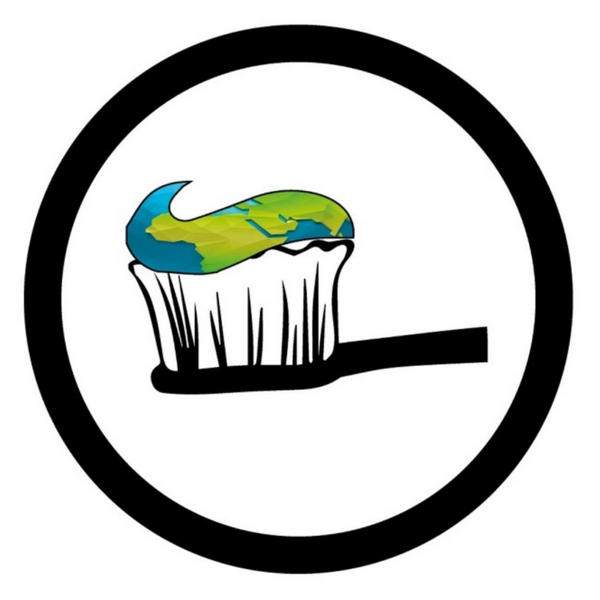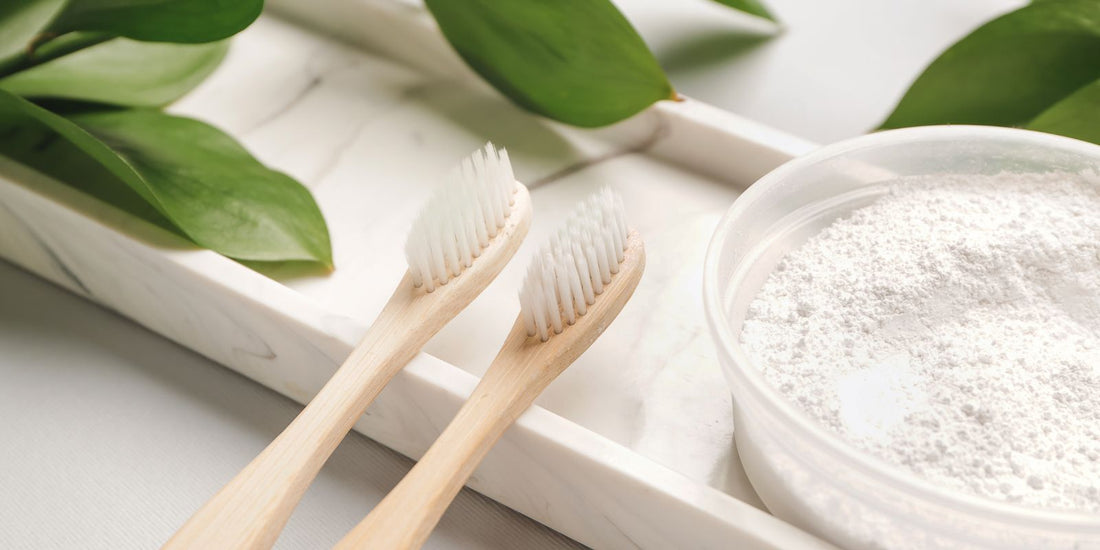In the ever-evolving landscape of oral care products, toothpaste tablets and toothpaste powder have emerged as innovative alternatives to traditional toothpaste.
With their compact forms and eco-friendly packaging, toothpaste tablets and powders offer convenience and portability.
In this comprehensive guide, we'll explore the key differences (and similarities) between toothpaste tablets and powder, examining their unique benefits and potential drawbacks, to help you decide which option is the best fit for your lifestyle and oral health needs.
Understanding Toothpaste Tablets
While toothpaste tablets are a relatively new innovation in the world of oral care, they are taking the industry by storm, with their sales expected to grow at a rate of more than 6.1% between now and 2031 (according to a new study looking into the toothpaste tablet market).
What Are Toothpaste Tablets and How Do They Work?
Toothpaste tubes have and continue to be a major contributor to non-recyclable plastic waste, and in 2007, researchers introduced toothpaste tablets to tackle this problem of ever-increasing plastic waste from discarded toothpaste tubes, marketed as a sustainable alternative to conventional toothpaste tubes.
Now, you might be wondering what toothpaste tablets are exactly. To put it simply, they are dry, compact discs designed to be crushed and mixed with water to form a brushing paste. They are perfect for those seeking sustainable and travel-friendly oral care options.
To use, you simply pop a tablet in your mouth, chew to break it down into a paste, brush as normal and then spit. It's the same process as regular toothpaste, just without the tube-paste!
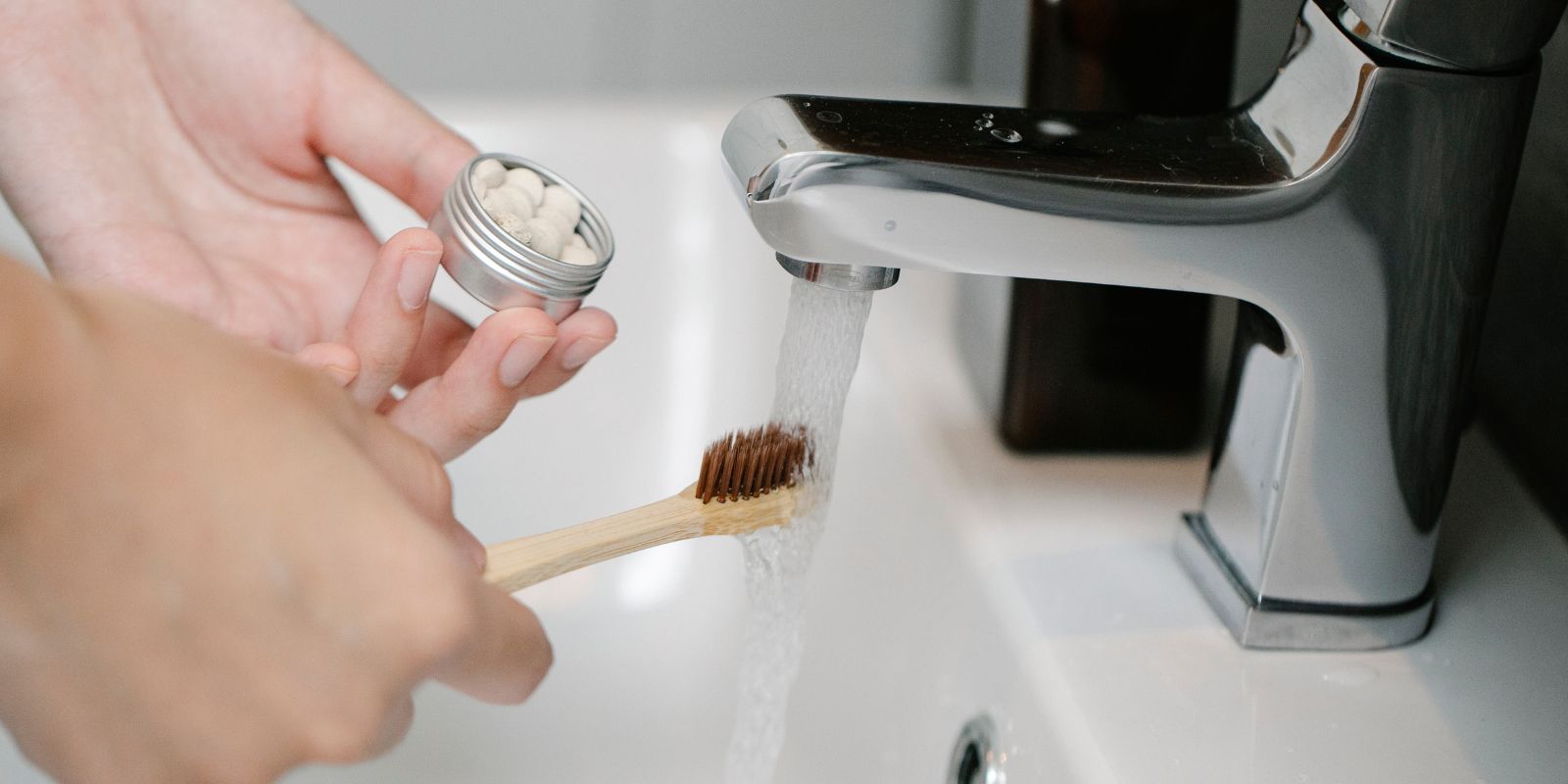
Toothpaste tablets are the ideal solution for those seeking sustainable and travel-friendly oral care options.
Pros of Toothpaste Tablets
There are a plethora of benefits of using toothpaste tablets:
- They are much better for the environment - Most toothpaste tablets will come in eco-friendly, recyclable packaging and will only contain natural ingredients (that are not harmful for the environment).
- They are travel-friendly - Due to their compact size, toothpaste tablets are super convenient for travel and eliminate the risk of spills or leaks commonly associated with traditional toothpaste tubes.
- Many are cruelty-free - Most toothpaste tablets will be cruelty-free and not tested on animals, unlike some brands of traditional toothpaste available on the market.
- They are just as effective as traditional toothpaste - Toothpaste tablets are dentist approved and as long as you brush correctly, they work just as well at cleaning your teeth as regular toothpaste tubes.
- They have a longer shelf life - As toothpaste tablets are solid and dry, they typically have a longer shelf life compared to traditional toothpaste, preventing waste.
- They contain a pre-measured dose of toothpaste - Each toothpaste tablet contains a pre-measured dose of toothpaste, ensuring that you only use the right amount for effective cleaning. This can ensure optimal oral hygiene without wasting product and therefore, wasting money.
Shop our wide range of dentist-approved zero-waste toothpaste tablets here, made from natural and vegan-friendly ingredients.
Cons of Toothpaste Tablets
- Texture preferences - While most people don’t mind the texture of toothpaste tablets, some may find the initial gritty texture while chewing less pleasant, especially those with sensory sensitivities.
- Inconvenient for some users - Despite their compact size and portability, toothpaste tablets may be less convenient for those with certain disabilities or mobility issues. For example, the need to chew the tablet before brushing may present difficulties for those with limited dexterity or jaw strength.
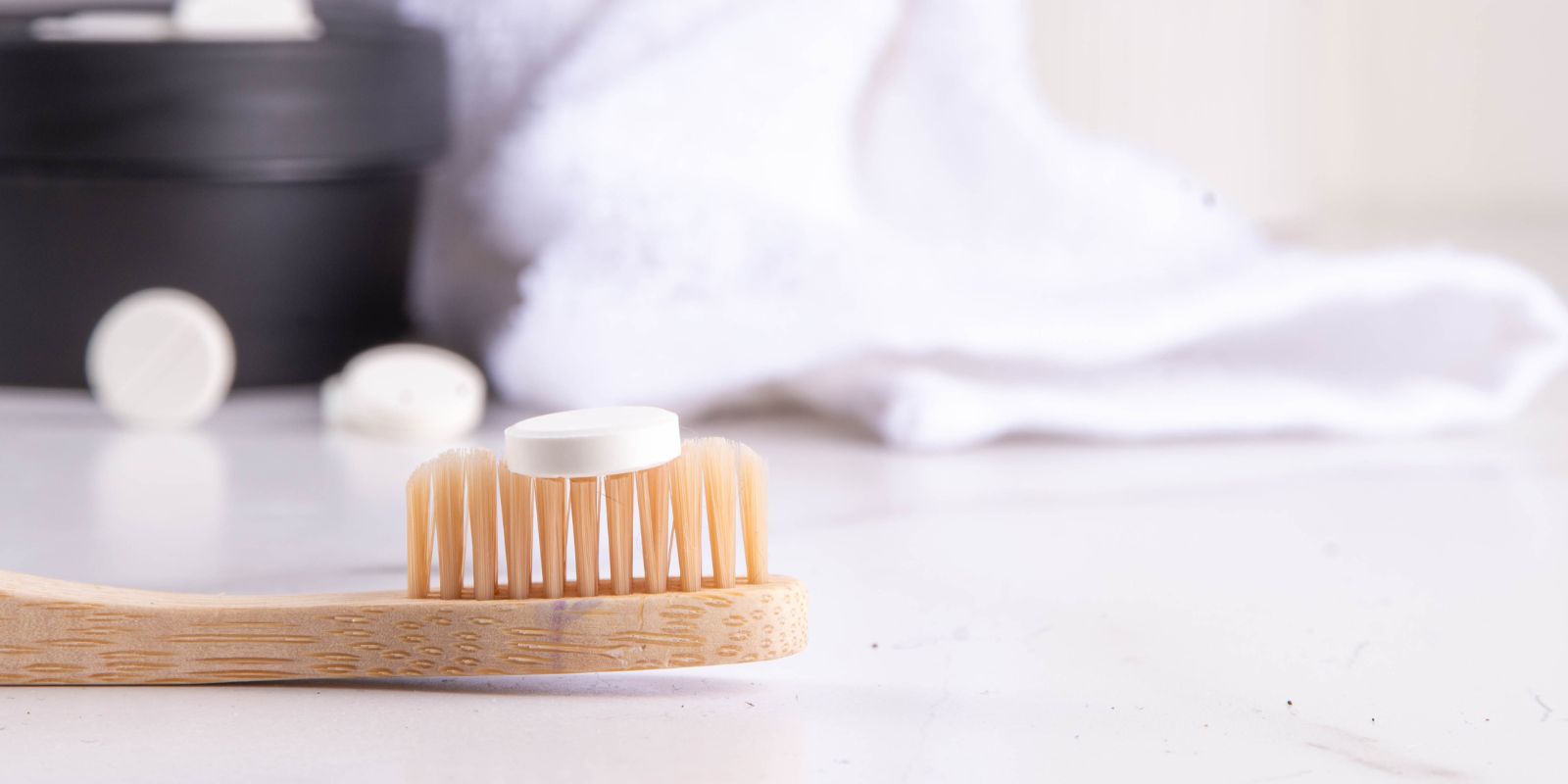
While many people question the effectiveness of toothpaste tablets when compared to traditional toothpaste tubes, the reality is that they are just as effective, as long as you follow the correct brushing method.
Exploring Toothpaste Powder
Another alternative to traditional toothpaste is toothpaste powder, which, as it says on the tin, is simply toothpaste in powder form.
To use tooth powder, run your toothbrush's bristles under the tap and shake the tooth powder over the bristles. Once you have a small amount of powder coating, the bristles, brush your teeth with your toothbrush as usual.
Pros of Toothpaste Powder
- They are housed in eco-friendly packaging - Toothpaste powder is generally packaged in glass jars instead of plastic tubes, which are much better for the environment.
- They are just as effective as traditional toothpaste - As long as toothpaste powders contain ingredients known to fight plaque and gingivitis, they can be just as effective as toothpaste tablets and tubes. Learn all about gingivitis and how to treat it in this blog.
- They don’t require chewing - Unlike toothpaste tablets, toothpaste powder doesn’t require chewing to form a paste. For those with limited dexterity or jaw strength, this could be super beneficial.
Cons of Toothpaste Powder
- Texture preferences - Similarly to the above, some individuals might find the texture of toothpaste powder gritty or unpleasant, particularly if they are accustomed to the smooth texture of traditional toothpaste.
- They can be messy - As toothpaste powder is loose, it can be more prone to creating a mess on clothes or your sink compared to compact toothpaste tablets.
- Potential for inhalation - Inhalation of toothpaste powder particles can be a concern, particularly for individuals with respiratory issues or sensitivities. Special care must be taken to avoid inhaling the powder while dispensing it onto the toothbrush and into your mouth.
- Less fluoride content - Some toothpaste powders contain low levels of fluoride or none at all, which could be a concern for individuals who rely on fluoride for cavity protection. Learn more about what fluoride is and why it’s so important here.
What About Traditional Toothpaste?
While toothpaste tablets have gained huge traction in recent years due to their convenience and environmental benefits, traditional toothpaste still remains the leading type of toothpaste, with over 300 million bought per year solely in the UK.
Traditional toothpaste refers to the conventional form of toothpaste housed in a tube containing a paste or gel-like consistency and is readily available in various flavours, formulations, and brands.
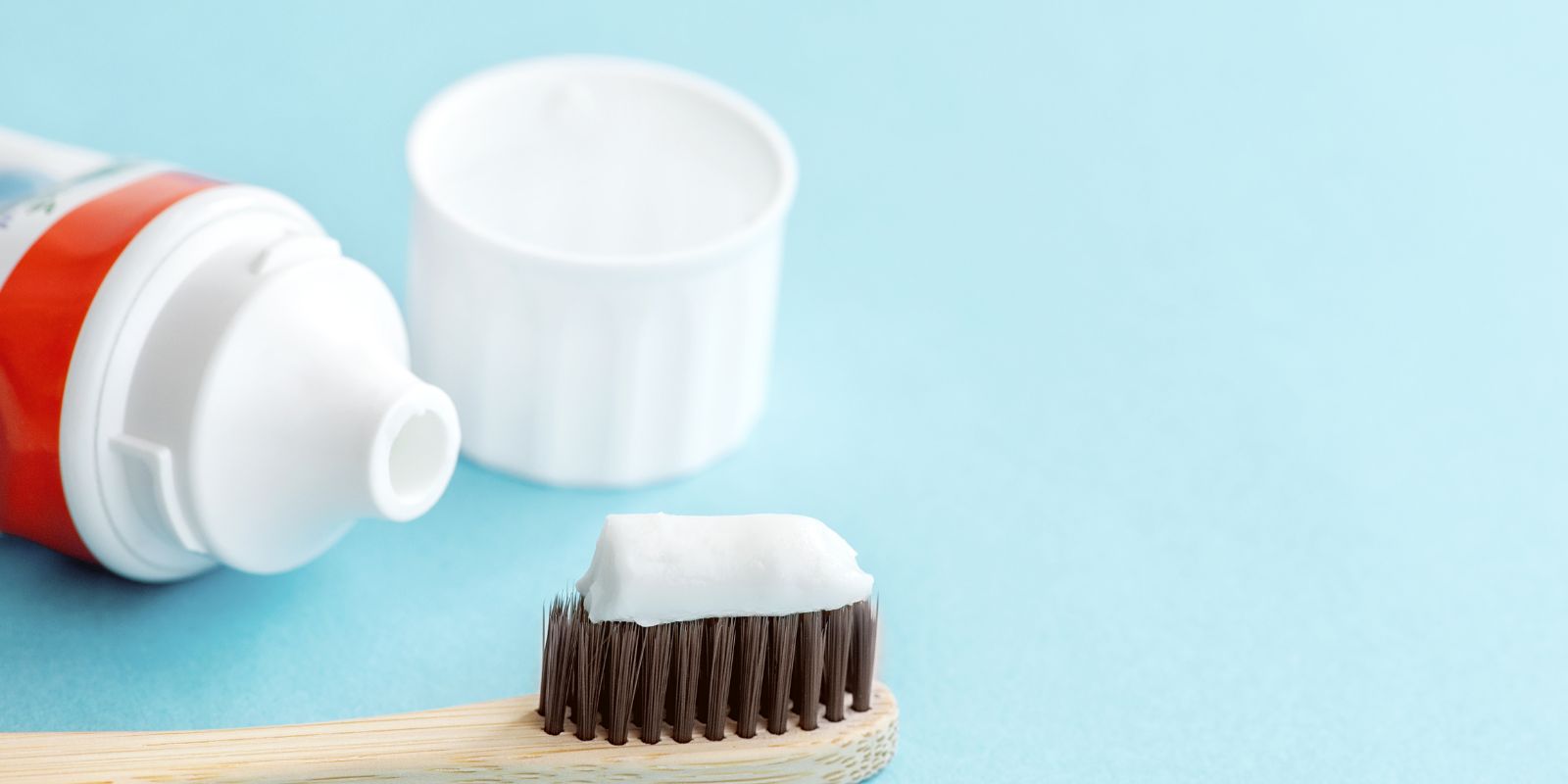
Here are just a few things to consider when it comes to traditional toothpaste tubes:
Environmental Impacts
The main problem with this type of toothpaste is that the tubes are usually made of different types of plastics, and many brands contain a metal layer inside the tube which isn’t easy to separate.
“A lot of toothpaste tubes have that layer of aluminium in to keep them fresh, but this makes it a recycling nightmare,” says spokesman of Business Waste, Mark Hall, “so unfortunately most tubes will end up at a landfill.”
Globally, 1.5 billion toothpastes tubes are discarded each year. And in the UK alone, we use 300 million tubes of toothpaste every year. If this was spread end-to-end, that’s around 75,000 kilometres of plastic, which could go almost twice around the world - and almost all of these end up in landfill.
What’s more, many toothpaste tubes contain harmful ingredients, such as triclosan, carrageenan and artificial colours, which when washed down the drain, can contribute to water pollution and have adverse effects on our fragile aquatic ecosystems and marine life.
Wastage Issues
Not only are plastic toothpaste tubes bad for the environment, there’s a high chance you might not be getting your money’s worth, with up to 10% of the product remaining when you think it’s empty.
Mark Hall states that “Manufacturers do this on purpose” - I.e. They are specially designed to make you buy a replacement tube sooner rather than later.
Plastic toothpaste tubes aren’t beneficial for the earth or your value for money.
Learn more about the impact of toothpaste tubes here.
To conclude
You can avoid these negative impacts of plastic toothpaste tubes and harmful ingredients by buying your toothpaste in tablet (or powder) form.
While toothpaste tubes still remain the most popular type of toothpaste on the market, we now have the power to make better choices with sustainable alternatives, such as purchasing toothpaste tablets or powders.
By selecting toothpaste with sustainable packaging and natural ingredients, you can mitigate the environmental impact of your oral care routine, while maintaining good dental hygiene.
🪥
Brush Fresh Co. is founded and run by a group of UK-based dentists, who specialise in environmentally-friendly and sustainable dental products. From biodegradable bamboo toothbrushes to zero-waste toothbrush tablets, our product range has been designed to put both your dental health and the environment first.
For more information and dental care advice, head over to our dental health & oral care blog page or get in contact with us here.